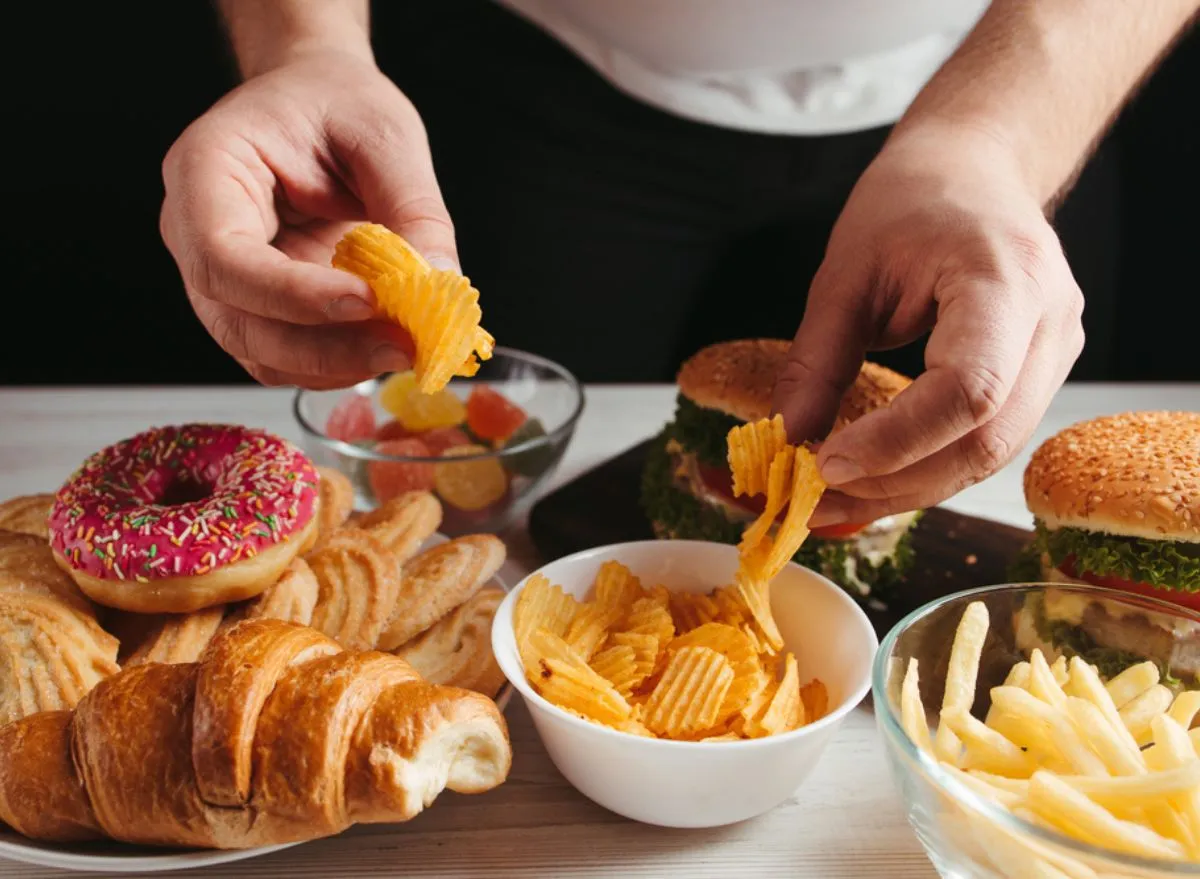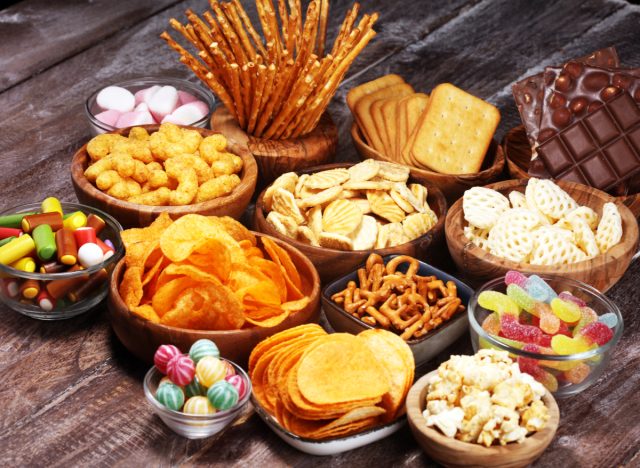The Worst Eating Habit for Colon Cancer, New Study Suggests

Colon cancer, also known as colorectal cancer, is one of the most common cancer diagnoses that those living in the United States find themselves facing, according to Cancer.org. In fact, the American Cancer Society estimates that well over 106,000 new cases of colon cancer will be diagnosed in 2022 alone on top of 44,850 new cases of rectal cancer. Beyond that, colorectal cancer is among the leading causes of cancer-related deaths, which is just one reason why you’ll want to avoid the disease if possible. That’s also why you’ll be interested to find out that a new study has determined the worst eating habit for colon cancer.
In the BMJ study published on August 31, 2022, researchers took a look at three separate studies that involved more than 200,000 health care professionals in the United States. Around 46,000 of the participants were men while almost 160,000 were women. Initially providing information regarding their eating habits via a questionnaire every four years, they were explicitly asked about the amount of ultra-processed foods they ate and how regularly.
When researchers followed up with the participants 25 years later, they found that 1,294 men had been diagnosed with colon cancer along with 1,922 women. They also found that men who ate more ultra-processed foods were 29% more likely to be diagnosed with colon cancer even when other variables were considered.
“This study is incredibly interesting,” Radhika Smith, MD, Washington University colorectal surgeon at Siteman Cancer Center, tells Eat This, Not That! “It further proves the link of both diet and obesity with colorectal cancer.”

Dr. Smith explains that ultra-processed foods may affect colon cancer risk due to the harmful, potentially carcinogenic ingredients found in these foods.
“Many of these ultra-processed foods are made with additives and preservatives which are known carcinogens,” Dr. Smith says. “Some of these additives haven’t been linked directly to causing cancer yet, but given the rising risk of young patients with colorectal cancer, we have to be concerned about unknown factors in the food we eat.”
Another reason why ultra-processed foods could lead to cancer is that they are calorically dense, which can lead to weight gain. “There is a clear link between obesity and colorectal cancer, and diets high in processed foods could also be high in excessive calories,” adds Dr. Smith.
At the same time, while the study found that women who were eating more ready-to-eat and heat-mixed meals increased their risk of colon cancer, ultra-processed foods didn’t have the same effect. Dr. Smith addresses this by saying that “there’s so much we don’t know about who gets colorectal cancer and why, so we can only draw so many conclusions on available data.”
Tips to cut back on ultra-processed foods
When it comes to examples of popular ultra-processed foods that people should avoid, Dr. Smith tells Eat This, Not That!, “Generally speaking, I encourage patients to just avoid food that has an ingredient list. The more fresh meat dairy and produce you can choose the better.”
“If you are choosing something that’s been processed, look at that ingredient list and avoid foods that contain anything in it that you can’t pronounce. It’s pretty simple but it’s a good rule of thumb to help you keep you and your family safe,” says Dr. Smith.









